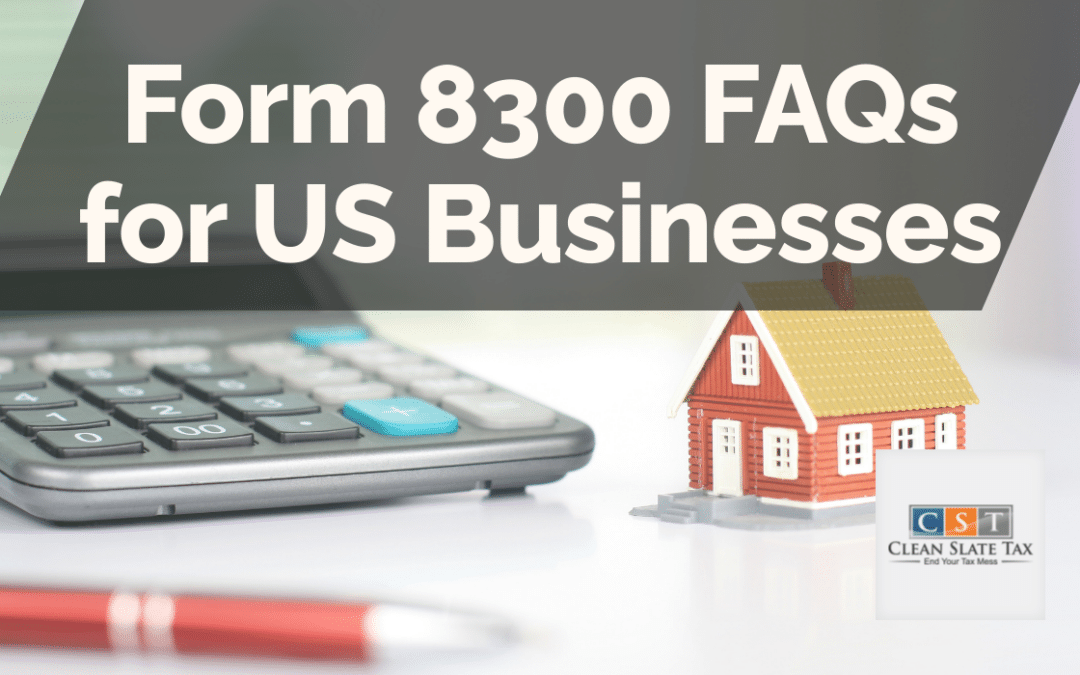As a US business owner, you may be required to file Form 8300 under certain circumstances. In this article, we’ll go over some frequently asked questions (FAQs) regarding Form 8300 filing requirements and provide some helpful tips.
What is Form 8300?
Form 8300 is a federal tax form used to report certain cash transactions over $10,000 in a trade or business. The purpose of the form is to help detect and deter money laundering and other financial crimes.
What types of transactions are reportable?
Reportable transactions include the receipt of cash in a trade or business such as:
- Sales of goods or services
- Rent payments
- Loan repayments
Transactions with multiple payments that total more than $10,000 within a 12-month period are also reportable.
Who is required to file Form 8300?
Any person in a trade or business who receives more than $10,000 in cash in a single transaction or in related transactions must file Form 8300. This includes individuals, corporations, partnerships, trusts, and estates.
What if the cash transaction involves multiple people?
If multiple people are involved in a cash transaction that exceeds $10,000, each person who receives cash in the transaction must file a Form 8300. For example, if a business receives a $15,000 cash payment from two individuals, the business and both individuals must file a Form 8300.
When is Form 8300 due?
Form 8300 must be filed within 15 days of the cash transaction that triggers the reporting requirement. If the transaction occurs outside of the US, the form must be filed within 15 days of the date when the cash was brought into the US.
How should Form 8300 be filed?
Form 8300 should be filed electronically using the Financial Crimes Enforcement Network’s (FinCEN) BSA E-Filing System. Alternatively, paper forms can be mailed to the IRS.
What are the penalties for failing to file Form 8300?
The penalties for failing to file Form 8300 can be severe. The IRS can impose a penalty of up to $25,000 for each violation. In addition, criminal penalties may apply if the failure to file is willful.
Are there any exceptions to the reporting requirements?
Yes, there are some exceptions to the reporting requirements. Cash transactions that are conducted with financial institutions, such as banks and credit unions, are exempt from reporting. In addition, some cash transactions involving the sale of personal property, such as a car or boat, may not be reportable.
What should businesses do to ensure compliance with Form 8300 reporting requirements?
Businesses should have procedures in place to identify reportable cash transactions and ensure that Form 8300 is filed accurately and timely. This may include training employees on the reporting requirements and maintaining accurate records of cash transactions.
What happens after Form 8300 is filed?
The information reported on Form 8300 is used by the IRS and other law enforcement agencies to identify potential money laundering and other financial crimes. The IRS may also use the information to audit the business and determine compliance with tax laws.
What are some best practices for Form 8300 compliance?
- Train employees on the reporting requirements
- Maintain accurate records
- Review transactions daily to identify reportable cash transactions
- File Form 8300 accurately and timely
- Have a compliance program in place that includes regular risk assessments
Conclusion
Form 8300 reporting requirements can be complex, but it is important for businesses to understand and comply with them to avoid potential penalties and legal issues. By implementing best practices and maintaining accurate records, businesses can ensure compliance with the reporting requirements and help prevent money laundering and other financial crimes.





